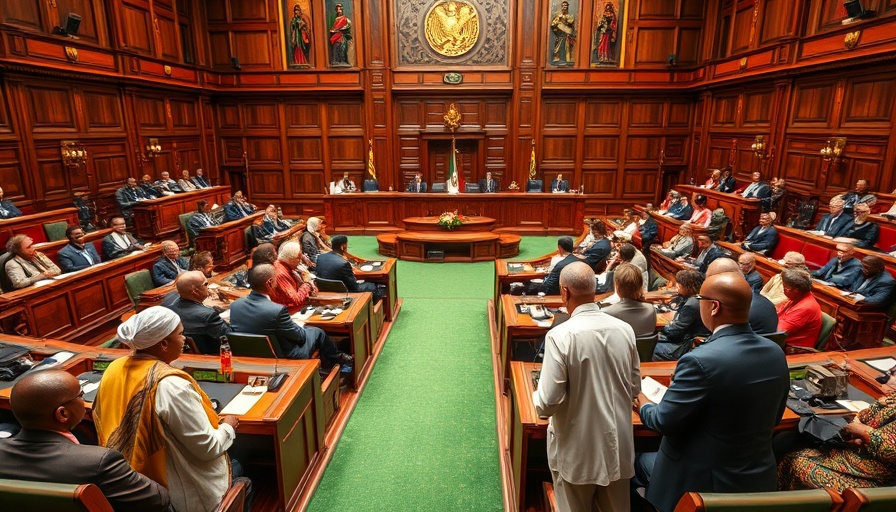
A New Model for Climate Action in Africa
In a recent speech highlighting the power of diversity and dialogue, UN Secretary-General António Guterres praised Papua New Guinea as an exemplary nation in the realm of climate action—a significant remark considering Africa's own struggles and aspirations in environmental sustainability.
The Implications for African Nations
As Guterres pointed out, the collaborative frameworks demonstrated by Papua New Guinea could serve as a blueprint for African nations grappling with climate change. This can especially resonate with business leaders and policymakers invested in sustainable practices, turning the dialogue toward actionable strategies that align with both local and global initiatives.
Building Bridges Through Dialogue
Dialogue remains a pivotal mechanism in addressing the multifaceted challenges Africa faces—be it climate policies, economic diversification, or international relations. The value of engagement, as echoed by Guterres, emphasizes the importance of pooling resources and ideas to forge robust solutions amidst the continent's rapid socio-economic shifts and evolving diplomatic landscapes.
Forging Sustainable Partnerships
In southern regions, nations are increasingly recognizing the significance of partnerships, such as those with EU or BRICS nations, to attract investments that are vital for climate resilience. These alliances can empower African countries to innovate in sectors like the digital economy, reinforcing their positions in global trade networks and financial markets.
A Call for Action
In light of Guterres's commendations for effective governance and climate strategy, business leaders and NGOs must foster environments that prioritize sustainability and inclusivity. By leveraging local knowledge and diverse perspectives, they can create initiatives that not only address climate issues but also enhance Africa's overall geopolitical stance on the global stage.
 Add Row
Add Row  Add
Add 


Write A Comment